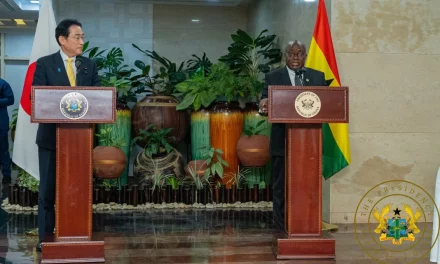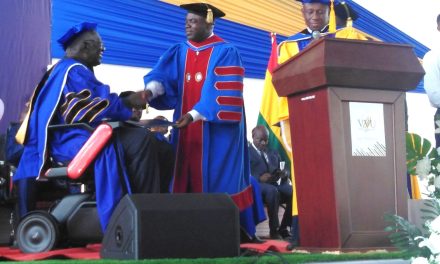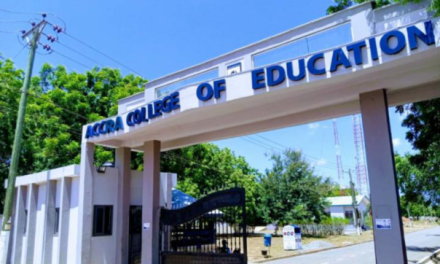
Holy Child School Transitions To Solar Energy2 min read


In recent times, the narrative of power challenges in Ghanaian schools has escalated, with numerous public institutions, such as Mfantsipim School, Accra Academy, and Mondo Senior High Technical School, facing abrupt electricity disconnections.
This persistent issue highlights the dire need for sustainable solutions for powering educational facilities, crucial for maintaining the quality of education.
Stepping into the spotlight with a pioneering initiative, the 1999 alumni of Holy Child School have set a remarkable precedent.
In a bid to combat these electricity woes, these visionary women have successfully funded the transition of their alma mater to 75% solar energy.
This initiative not only addresses the immediate problem of power outages and financial strains on the school’s budget but also serves as a beacon of climate-positive action with the potential for carbon credit benefits.
Founded in 1946 by the Society of the Holy Child Jesus, Holy Child School has long stood as a bastion of educational excellence and societal impact in Ghana. Its alumni include distinguished personalities such as Ghana’s Ambassador to France, Anna Bossman; Goldman Sachs vice-president, Sabina Dankwah and the University of Ghana’s vice-chancellor, Nana Aba Amfo, to name a few.
The solar project
This solar project, a gift from the 1999 alumni commemorating their 25th anniversary and coinciding with the school’s 78th speech and prize-giving day, symbolises a profound act of giving back and forward.
In an exclusive interview with the Business and Financial Times, engineer Sheila Enyonam Akyea, president of the year group, shared: “This project builds on the foundation laid by our predecessors. We’re thrilled to extend their initial contribution, ensuring every corner of our school benefits. It’s our way of ensuring current and future students receive the same level of empowerment and opportunity we had.”
The project’s committee chair, Ing. Teresa Kyei-Mensah, mentioned the substantial investment the solar installation demands, emphasising ongoing fundraising efforts.
She said: “Once completed, the initiative promises significant savings for the school and, by extension, the Ghana Education Service, redirecting funds towards essential educational resources,” she added.
Solar power, increasingly recognised for its affordability and environmental benefits, stands as a viable solution for Ghana’s educational sector and its broader climate goals. With abundant sunshine year-round, Ghana is ideally positioned to harness solar energy, reducing the financial burden on public resources while contributing to global carbon reduction efforts.
The project was completed in January 2024 after a 1-month testing phase. The year group eagerly anticipates the handover ceremony at the 78th Speech and Prize-Giving Day of Holy Child School in Cape Coast on Saturday, 9th March 2024 marking a significant milestone in their commitment to sustainable development and quality education in Ghana.
This initiative not only lights the way for other schools grappling with similar challenges but also underscores the powerful impact of alumni engagement in shaping a brighter future for the next generation.


















